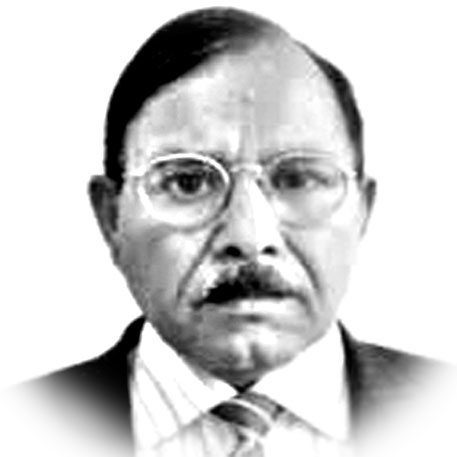Malik M Ashraf
GOOD governance is about delivering and responding to complaints of the public expeditiously. If we apply the foregoing touchstone for judging the quality of governance and review the permeating situation, we can safely infer that over the last seventy years the people have endured bad governance and the successive governments have failed to deliver in regards to provision of civic amenities to the public and resolving their complaints and grievances concerning government departments and functionaries.
It was in the backdrop of this dismal situation that the PTI government launched Pakistan Citizens Portal to make the life of the people comfortable by ensuring that their complaints and grievances against the government departments were attended and taken care of without any loss of time. The complaints were monitored at the Prime Minister under his personal care. This arrangement has been a tremendous success. The Prime Minister addressing a ceremony on the completion of the two years since the launch of the Portal revealed that around three million people registered themselves on the portal and reported 2.7m complaints, out of which 2.5m were resolved. The forum not only helped in resolving the public complaints but also gave a fare idea to the Prime Minister about the performance of his ministers and different government departments. It also pinpointed the inadequacies in the system of governance.
The Prime Minister observed that most of the complaints pertained to local and municipal issues and acknowledged that the local government system was not working well in the country and therefore his government was going to introduce a new system of autonomous local bodies. The Prime Minister has rightly diagnosed the problem. The country needs a system of local bodies in conformity with Article 140-A of the Constitution. Our constitution envisages a three tier system ie Local governments, Provincial governments and the Federal government. But it is a regrettable reality that the country has mostly been run on two tiers. Even more painful is the fact that the elected governments which interspersed military regimes paid no attention to this constitutional obligation and ironically it were the latter which established local governments during their power stints.
The only local body election held by an elected government was in December 2013 not because it had decided on its own to go for the fulfillment of the constitutional obligation but it was ordered by the apex court. However, the local governments established as a result of the foregoing elections were not structured in conformity with the spirit of the Constitution. Article 140-A of the Constitution says“ Each province shall, by law, establish a local government system and devolve political, administrative and financial responsibility and authority to the elected representatives of the local governments.” It is abundantly clear that under this article the local administration (including policing) is supposed to be under the elected bodies besides the responsibility carrying out development projects and having powers to generate financial resources of their own. Bringing the police under control of the local government can greatly help in eliminating the ‘Thana Culture’ and giving back their honour to the people. But that was never done.
The real issue is of good governance. The successive governments have failed to deliver to the people because of the perpetuation of the archaic colonial system of governance which has in-built avenues of graft and entitlement. The solution lies in two things i.e. establishment of the local governments in conformity with Article 140 A and changing the way we elect our representatives. My considered opinion shared by myriad of intellectual and political analysts is that politics of more provinces is nothing but a political gimmickry. Carving out new provinces from the existing provinces would require approval from the two-thirds majority of the respective legislatures as well as a similar nod from Parliament which looks a distant possibility in view of the permeating ambience of political confrontation. Even if by any chance the concerned parties agree to the propositions as a result of give and take, the creation of new provinces under the present system of governance and the existing mode of electing the representatives on the basis of single constituency, is not going to resolve the real issues which are advanced as arguments for the balkanization of the existing provinces. It would lead only to the creation of more centres of power to the advantage of the vested interests with the elitist class and feudal lords belonging to the concerned areas becoming the new power wielders.
People want their problems resolved at the local level which can be done only through strengthening the local government as per the Constitution. It is therefore incumbent upon the political parties to shun their traditional politics of befooling the people and show honesty of purpose in resolving their problems through improved governance in consonance with the Constitution. As far as providing justice to the people at their door steps or near their homes, it can be done through setting up High Court benches at every district headquarters and separating the judiciary from the administration in line with Article 175(3). It is also imperative to break the hold of the elitist class and feudal lords on the political power by changing the present system of electing our MNAs and MPAs. In the single constituency system only wealthy people can contest the elections and instead of the party leaders the real power rests with the so-called electables who play a pivotal role in the making and breaking of regimes. Since majority of the constituencies belong to the rural and tribal areas, the prevalent system strengthens the hold of the feudal lords or the elitist classes belonging to the urban areas which have a common interest in perpetuating the archaic colonial system of governance.
— The writer is freelance columnist based in Islamabad.








